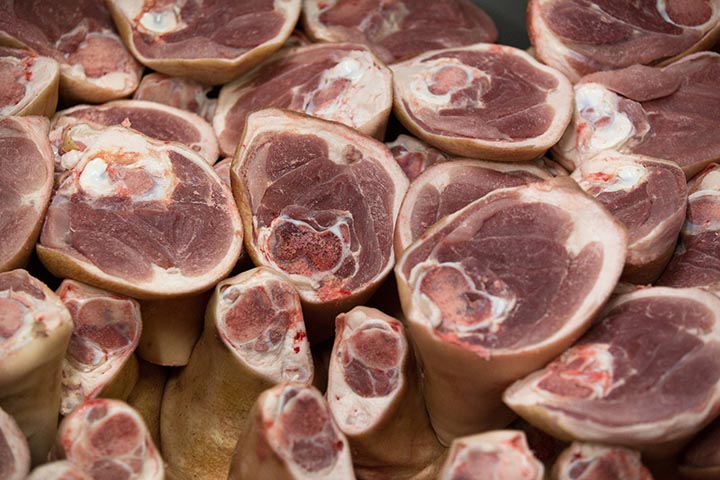
Nongovernment organization Samahang Industriya ng Agrikultura (SINAG) is optimistic that its petition to increase pork tariff rates to as high as 44 percent amid the shortfall in domestic supply would be granted by the Tariff Commission (TC).
The group claimed that the TC, the country’s top tariff body, “would be on the side of agriculture this time” as its position was based on “solid data.”
It also reiterated its position that meat importers and traders are the only ones “making a killing” from lower pork tariff rates, citing the “huge disconnect” between the landed cost of shipments and retail prices.
The group pointed out that at the current lowered tariff rates of as low as 5 percent the landed cost of imported pork should range from P74.76 per kilogram (kg) to P80.76 per kg. It also said in its presentation that the landed cost of pork imports slapped with a 15-percent tariff should range from P81.65 per kg to P87.78 per kg.
Despite this, the group noted that the retail price of pork is from P330 per kg to P370 per kg.
“We are very optimistic that our petition will be granted and this time, we are optimistic that the TC will be on the side of the agriculture sector,” the group said during the TC’s public hearing on their petition to hike pork tariff rates.
This is the second public hearing on pork tariff rates conducted by the TC. The first hearing, which was held in February, focused on the Department of Agriculture’s (DA) proposal to reduce tariff rates.
The group also questioned the DA’s opposition to its petition, saying that the department should side with producers.
“Why is the DA disputing our proposals? If they think our data is wrong then it should dispute our data,” the group said.
Agriculture Undersecretary William C. Medrano said the DA’s position is to “respect and implement” President Duterte’s Executive order (EO) authorizing the reduction in pork tariffs and increase in pork minimum access volume.
Medrano said the pork tariff reduction, which started last April 7 and would end on May 15, 2022, is a “short-term” measure by the government to address the shortfall in domestic pork supply and arrest rising prices.
The DA official said the country is now starting to feel the impact of lower pork tariffs as the influx of imports, particularly bellies and pork cuts, has stabilized prices.
Citing the DA’s daily price monitoring reports, Medrano said the average price of fresh locally-produced pork kasim sold in Metro Manila wet markets has stabilized at P340 per kg while pork liempo is at P370 per kg, or P30 to P40 lower than their peak prices in January.
Medrano also disclosed that imported frozen pork kasim is now being sold for P290 per kilogram.
However, the Office of Sen. Cynthia A. Villar raised concerns about the prices disclosed by Medrano during the public hearing.
Atty. Rhaegee Tamana, Villar’s chief of staff, said stability of prices is not the ultimate goal of the EOs of the President but to bring down retail wet market prices to pre-African swine fever levels.
Medrano said further reductions in the retail price of pork would be seen in the coming months since the EO has only been in effect for “barely two to three months.”
Sinag filed a petition before the TC to raise the in-quota pork tariff rate to 40 percent and the out-quota rate to 44 percent.
